Swimming with a Broken Back
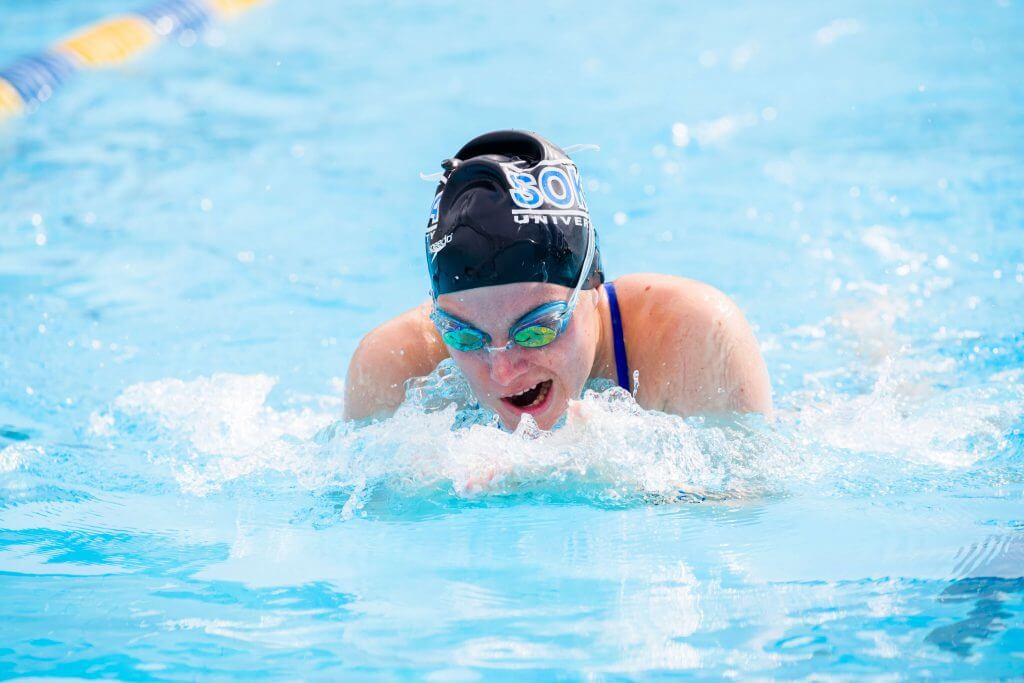
By Cassidy Lavigne, Swimming World College Intern
At the pull of the erg during a varsity rowing practice, Hanna Rossen, now 21, felt her back snap, sending her body into shock as she sat still hyperventilating. She couldn’t walk, lie down or move. After being sent home by her coach and told to take some aspirin and sleep it off, Rossen didn’t think twice about her injury. Back tweaks are common in rowers, and unaware of her serious injury, Rossen pushed through a year and a half of her varsity season before going to see a doctor.
After a year and a half of back spasms, some lasting up to an hour, Rossen decided to see a doctor. From there, a series of CAT scans, X-rays, and other tests were done, until the doctors found something wrong with her lumbar 5 in her spine. The small piece of bone was completely missing.
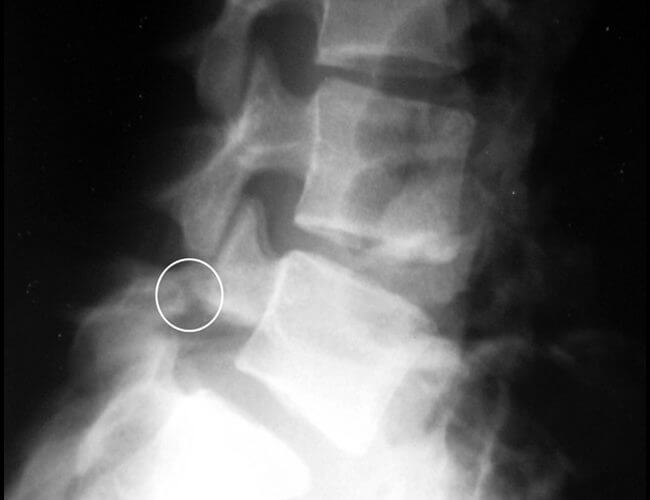
Photo Courtesy: American Academy of Orthopedic Surgeons
The doctors determined that Rossen’s injury was a case of Pars Defect or a stress fracture, but because Rossen had continued to vigorously train on it, the vertebrae healed incorrectly. Rossen had to stop exercising for three months. She was at the peak of her season, training three to five hours daily, to suddenly nothing.
“We were training for nationals with the light weight boat. For crew, it’s incredibly important that there is a connection with each member on your boat. If you aren’t rowing as one, you won’t win. It was really hard to not be part of my boat, training for the most important race of the season,” Rossen commented.
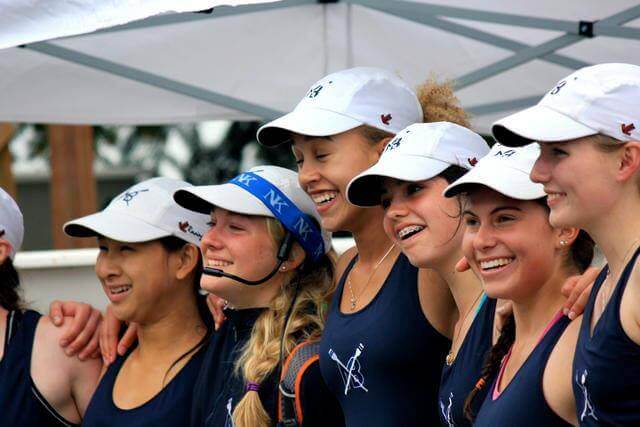
Photo Courtesy: Mount Baker Rowing Photography
Before her injury, Rossen had rowed for three years with a promising future of collegiate rowing. Although Rossen was able to return to rowing as a coxswain her final season, her back was too weak to row.
Rossen started swimming when she was nine years old for her summer league team. Her experience in the sport led her to help create a swim team at her high school. Once she was cleared by her doctors, Rossen was able to moderately swim freestyle for 45 minutes a day.
After she committed to Soka University of America, Rossen researched the swim team and made contact with the coaches Adam Crossen and Drew Crowell.
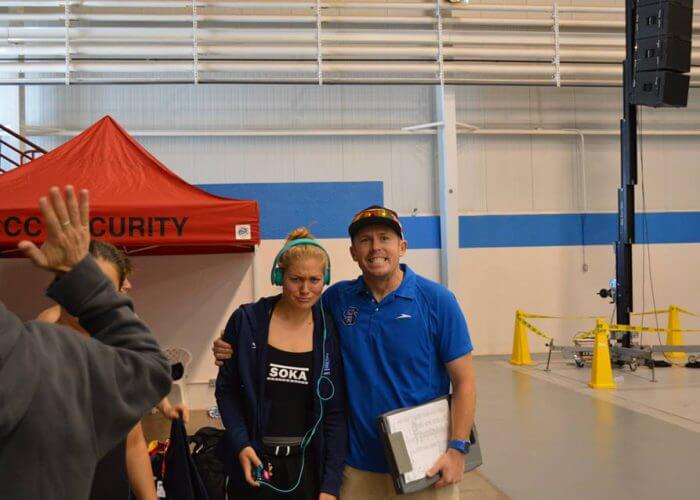
Photo Courtesy: Nick Peck
“I hadn’t swam in a while because of my injury and I was nervous how my back would hold up. My back injury was one of the first conversations I had with my head coach,” Rossen stated.
With her coaches understanding of her injury, Rossen started at Soka as a walk-on, but was quickly brought up to the recruit team.
“My coaches have been incredibly supportive—giving me stretches, understanding if I can’t do flip turns some days, alternating dryland workouts if they put pressure on my back—“
After slowly building up her back and core muscles over the season, Rossen qualified for NAIA Nationals her freshman year. She also began practicing other strokes, including breaststroke and backstroke, which she hadn’t been able to do in the past because of her injury.
“In a lot of ways her training in the boat has helped her in the water. Developing the stroke is similar to rowing the boat with perfect repetitions to maximize power and with efficiency. I see that in her swimming while she workouts.
“Her back injury while hard on her body and having good days and bad, also makes her very aware of posture in the water and helps create an efficient stroke,” Head Coach Crossen commented.
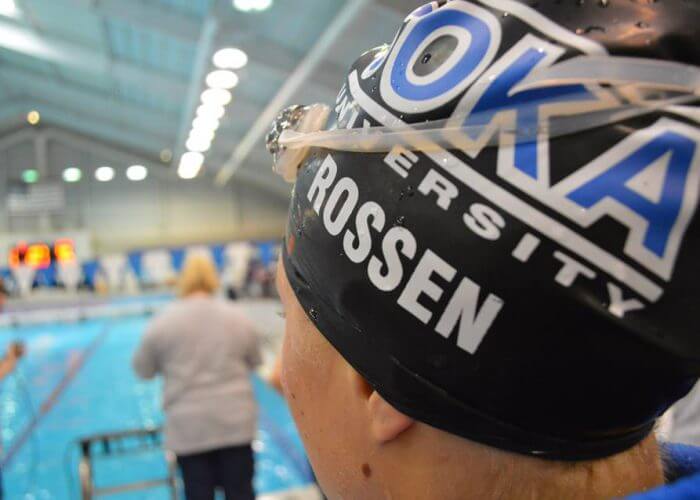
Photo Courtesy: Nick Peck
Her second year, Rossen qualified for NAIA Nationals again and was the teams’ breaststroker in the medley relays.
“I never believed I would be able to do so well. The doctors told me I would never be able to do these things again and yet here I was competing on a national level. Now, I’m able to swim all the strokes except butterfly, but have been working on it slowly and carefully.
“I can do a four minute plank now whereas before I couldn’t at all. I have come so far with the support of those around me. Swimming is the thing that kept me going, kept driving me to strengthen myself so that I’m not held back by my injury any longer,” Rossen commented.
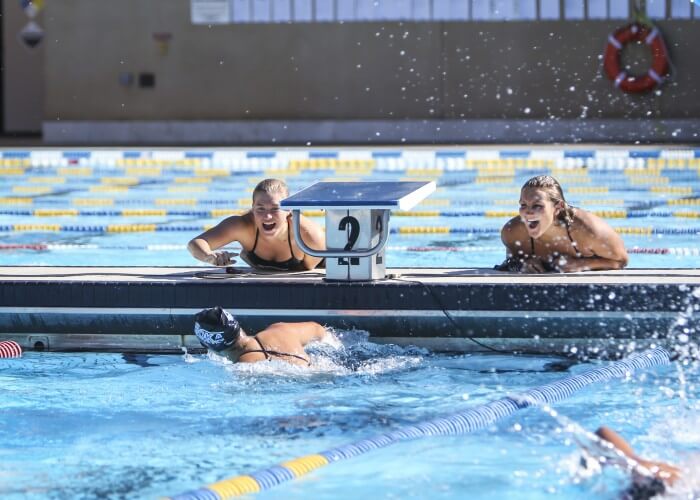
Author Lavigne and Rossen cheering at Soka University Aquatics Center, Photo Courtesy: Min Xiang Lee
Rossen is now a rising senior at Soka University of America where she will be one of the team captains next year. She is hopeful to attend NAIA Nationals in the 500 and 200 freestyle.



